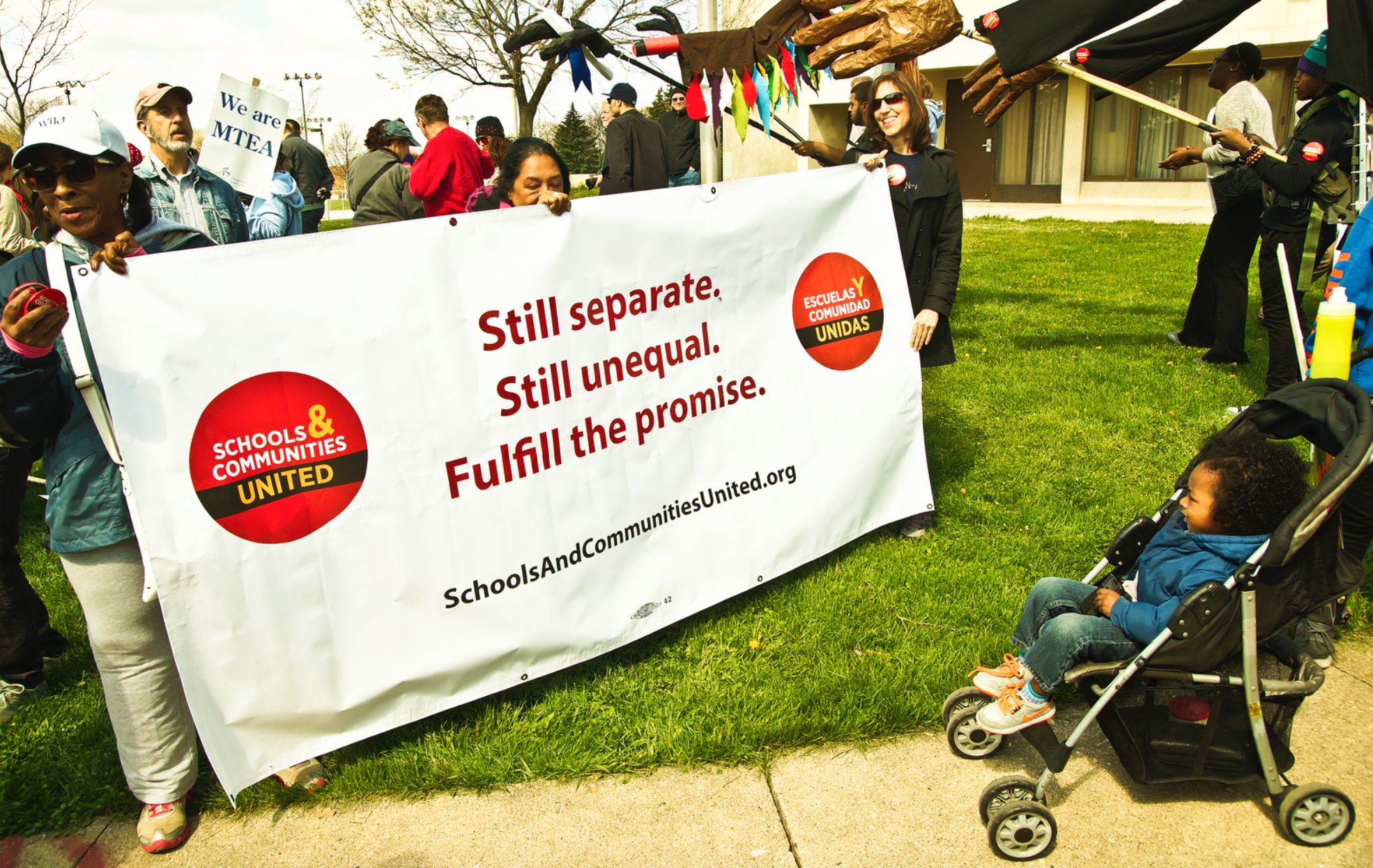Title Page
Orleans School Board Defers Vote on Tax Exemptions. Times-Picayune.
Introduction
Houston Mayor Sylvester Turner joins dozens of area mayors and county judges to ask the state to help fund local share of FEMA recovery. City of Houston.
The FEMA 404 Hazard Mitigation Grant Program can assist us with those mitigation efforts, but there is a local match required. We write today to ask the State of Texas to utilize the Economic Stabilization Fund or other state funding source to participate fully, at 100 percent, in covering the local match...Funding of the local share would allow the State of Texas to directly contribute to flood mitigation projects. By covering the local share, not only would the state directly save local taxpayer dollars, but would equitably fund projects across the impacted area.
Executive Summary
This week marked the 64th anniversary of the Brown v. Board ruling striking down state-sanctioned segregation but today, the nation's public schools are still strikingly segregated. In fact, some school districts were fighting court orders to desegregate well into the 21st century. School segregation has also been linked to residential segregation, as researchers have shown that family residential choices based on school zones and district boundaries maintain school segregation. But even in choice districts, where students presumably are not bound to their zoned schools, those decisions can end up fueling further segregation, as is the case in New York City's public schools.
Amid debates about how school segregation has been created and reproduced, there is another important question: why it matters. Among the arguments made to the court more than six decades ago was that segregation led to inherently unequal schools not just for black children, but that it harmed white children as well.
"Providing youth with opportunities to experience meaningful intergroup contact is especially important because children’s early life experiences can have long-term consequences for their developing intergroup attitudes and beliefs," according to one of the findings of a recent research brief from the National Coalition on School Diversity. "It also helps to reduce anxiety about difference, builds capacity for empathy and caring about others, develops leadership competencies and plants seeds for social change." The brief summarizes the research, making the case for socioeconomically and racially integrated schools. "While the lessons and legacy of Brown continue to be battled out in school boards and courtrooms across the nation, the social science supporting school integration has only become stronger over the last several decades," the report concludes.
Key to integration is execution. “It is clear to me that racially integrated schools are necessary but not sufficient," Anda Adams, the assistant superintendent for curriculum and instruction for Cambridge Public Schools, is quoted as saying in the brief. "We must ensure that our classrooms are integrated, and even beyond that, activities are intentionally designed to bring students from different racial or ethnic groups, socio-economic groups, and special education status together into regular, meaningful contact that can lead to the ultimate outcomes of empathy and caring for others to achieve social change.”
Read the brief here.
Conclusion
Health outcomes in Houston don't compare well to other cities. The American College of Sports Medicine released its latest rankings of the fittest cities, looking at everything from asthma and obesity to green space and transit use, and Houston ranked 60 out of the 100 largest cities. As those metrics hint, health isn't just about diagnoses. Writing in the Houston Chronicle, Valerie Borum Smith, a pediatrician in Tyler, Texas, argues that Texas and places like Houston, needs a comprehensive approach to health.
"Not only were socioeconomic factors barriers to treatment for many of the families I cared for, but in many instances, they were actually the cause of the child’s health problems," she writes, reflecting on her experience. "The child with a speech delay was growing up in a home where the mother couldn’t read. The young patient’s asthma attacks were triggered by an insect infestation in her family’s rental home, but her parents feared eviction if they complained to the landlord. The family of the child with obesity relied on food they received from the local pantry that often included high-calorie snacks and baked goods but little fresh produce."
She puts forth the Community-Centered Health Home models, which received an infusion of support here this February when the Episcopal Health Foundation gave $10 million to 13 health centers in the Houston and Austin areas, as well as Waco and Tyler.
Endnotes
Q: is reform compatible with public safety?
— Jaison Oliver (@oJaison) May 17, 2018
A from DA Ogg: not only that but reform is required to make us safer. #RaceJusticeTX

